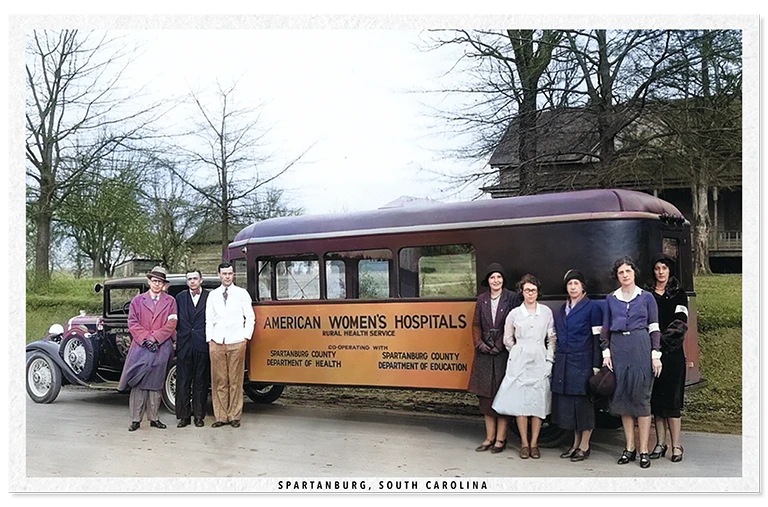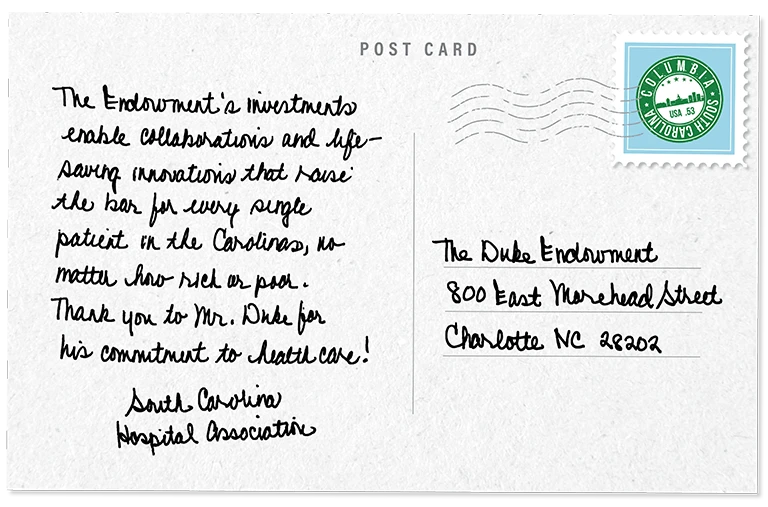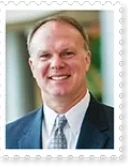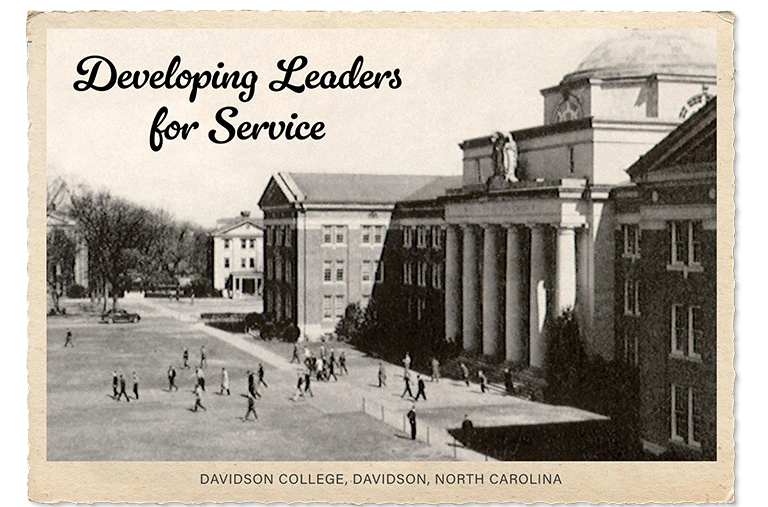


Driving Health Improvements for All

Reflections by
Thornton Kirby President and CEO South Carolina Hospital AssociationAs hospitals made themselves indispensable in the early 20th century, James B. Duke established a philanthropic mission to support them and to defray costs for those who could not afford medical care. Over the past century, the Endowment’s Trustees have met and exceeded Mr. Duke’s mandate, improving health care for the poor and simultaneously raising the standard of care for all Carolinians.
At its inception in the 1920s, the Endowment contributed significantly to the modernization and advancement of hospitals across the Carolinas. It spearheaded the building of new hospitals, updated existing ones and upgraded the training of medical and administrative personnel. Its work helped inspire the Hill-Burton Act of 1946, a federal program that underwrote large-scale construction of hospitals in underserved areas across the country.
Before World War II, the Endowment could defray the costs associated with hospital care, which were relatively modest. As technology and pharmacology advanced in the postwar era, however, life expectancy increased. Not surprisingly, the cost of hospital care exploded, along with innovations in surgery and medicine. Today the Endowment cannot cover all the costs of care for the uninsured in the Carolinas, but it still stimulates innovations in care and fills gaps to improve health outcomes.
Early in my career, I joined the administration at Tuomey Regional Medical Center in Sumter, S.C., where grants from The Duke Endowment enabled us to serve the community in ways that often were not reimbursed by any insurer, such as meeting the dental, vision and hearing needs of school-aged children. When I joined the South Carolina Hospital Association (SCHA) 20 years ago, there was a national campaign to improve the quality and safety of care. The Endowment invested in the North Carolina Healthcare Association and encouraged the SCHA to join in the work. That generosity was transformative for our organization, because for the first time we convened hospitals to improve care for the people of South Carolina.
For example, the Endowment’s investment enabled SCHA to study the best practices for treating heart attacks and identify best practices from across the nation. We launched a statewide effort to standardize heart attack care in every community, equipping all ambulances with necessary equipment, establishing care protocols between EMTs and cardiologists, and bypassing hospitals that could not deliver state-of-the-art care. Cardiologists told us that “time is muscle,” because the longer a coronary artery remains blocked, the more the heart suffers permanent damage. So, we focused on the average time from the door of the hospital to the balloon angioplasty procedure, known as “door-to-balloon” time. When we started, the gold standard for door-to-balloon time in the United States was 90 minutes. South Carolina’s statewide average performance was 93 minutes. Three years later, after we had spread the best practices to all emergency medial services agencies and hospitals,

South Carolina’s average door-to-balloon time was only 46 minutes. That represented a tremendous improvement in outcomes for South Carolina heart attack patients and would not have occurred without the support of The Duke Endowment.
Hospitals in most states do not work that collaboratively to improve outcomes. Each hospital has its own priorities, and those priorities are rarely coordinated with those of other systems. The Endowment has long encouraged South Carolina hospitals to work collaboratively, and our patients are the direct beneficiaries.
Now, in the last three years, the Endowment has developed CaroNova. This innovative partnership between the Endowment and the two state hospital associations is designed to engage not only the hospital community, but also payors, employers and government to improve the health status of all people in the Carolinas. We are moving the conversation outside the health care setting to address broader factors that can impact a community’s health, such as social determinants and government policies.
The Endowment’s investments have raised the bar for every single patient in the Carolinas, no matter how rich or poor.
Thank you to Mr. Duke for his commitment to health care!
The Endowment’s investments have raised the bar for every single patient in the Carolinas, no matter how rich or poor.
Thornton Kirby
President and CEO, South Carolina Hospital Association



